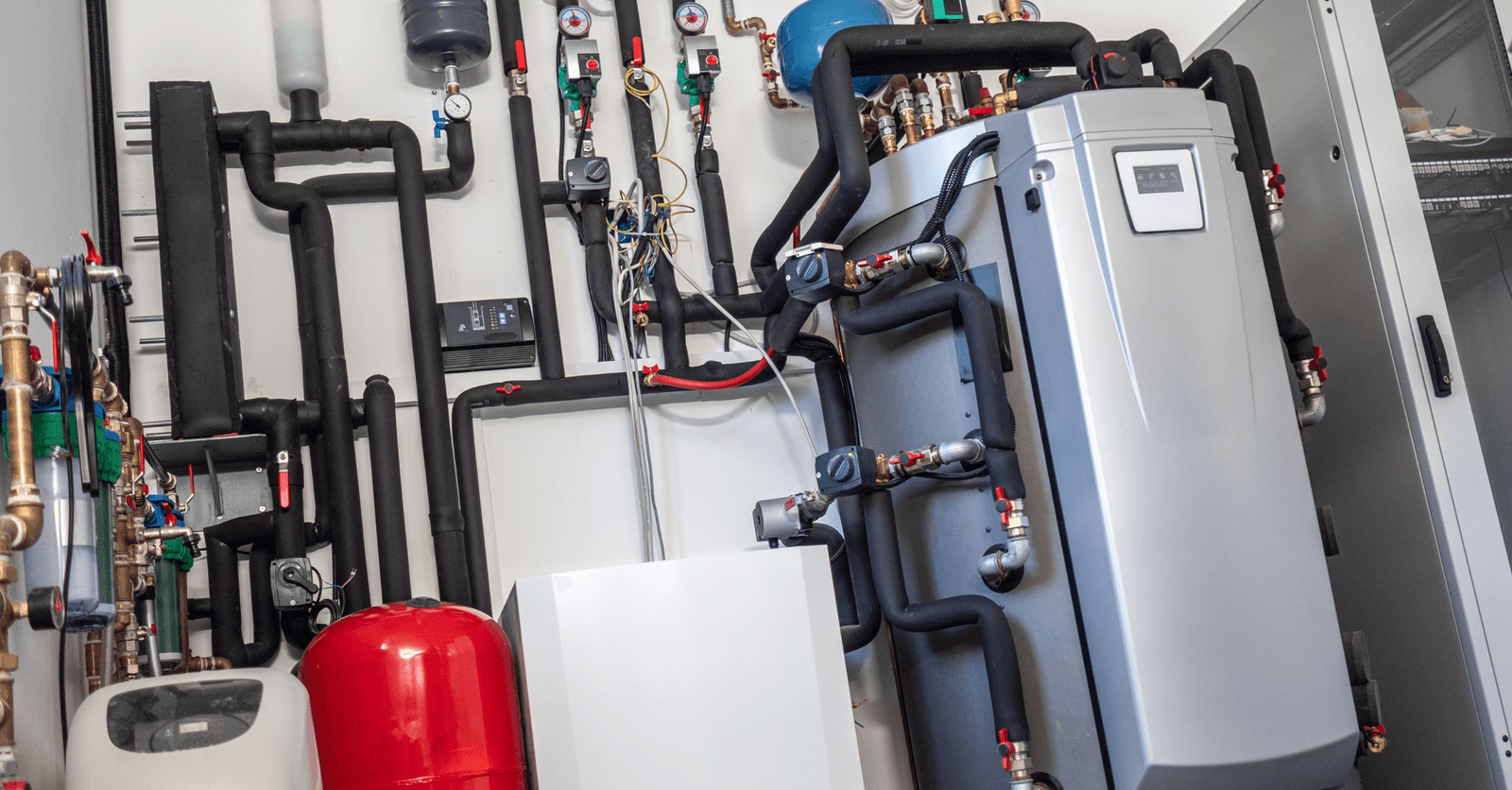Electric Thermal Storage - What to Know About Central Heating
By Editorial Team
Updated on January 24, 2025

In the latter part of 2022, Steffes, in collaboration with Hydro-Québec, had already supplied 75 households with a central heating system with electric thermal storage and was expecting 100 more orders. Maybe you’ve heard about it? What is it exactly, and how does it work? Well, it’s an innovative solution that might just revolutionize heating.
Here’s what convinced these households, and what may also appeal to you.
How does a central heating ETS system work?

Source: Canva
Hydro-Québec struggles to cope with high consumption during peak winter season. So much so that the electricity producer and distributor giant reached an agreement with IESO (Independent Electricity System Operator), an Ontario-based electricity manager, to secure an additional 600 MW during peak demand periods.
The inability to produce enough power isn’t the sole reason behind power outages. Every year, storms, freezing rain, or heavy snowfall damage power lines.
To ensure you don’t end up without heat in the dead of winter, storing heat is the ideal eco-friendly solution. Doing so allows you to heat your home without electricity and fossil fuels.
The Physical Function of an Electric Thermal Storage System
A central heating system with electric thermal storage is pretty straightforward, as its name suggests, it relies on sensible heat storage.
In the case at hand, it means heating high-density ceramic bricks to create:
an endothermic reaction (heat absorption) and;
an exothermic reaction (heat release).
The electric thermal storage system is then connected to the household’s ventilation ducts. Hence, it benefits from the calories absorbed by the ceramic, courtesy of thermal storage.
Scientifically speaking, it relates to increasing a material’s enthalpy, meaning the sum of its energy.
The Practical Function of an Electric Thermal Storage System
In practice, a thermal storage system is a relatively simple device made with a high-density ceramic thermal mass. The thermal mass is penetrated by a flow of warm, drawn air, facilitated by electricity.
During peak periods, the thermal mass is programmed to suspend heat storage. The drawn air will then go through it and be warmed upon contact. Next, it’s channelled through the ventilation ducts to heat up a home’s living quarters.
To ensure optimal comfort, and prevent zones from overheating, the heating system automatically shuts off when the ambient temperature is too high.
Therefore, the goal is to fully benefit from Hydro-Québec’s dynamic pricing, by combining an electric thermal storage system with a heat pump or furnace.
As such, when used efficiently, a heating system with electric thermal storage results in potential savings of up to 23% on power bills, due to its storage capacity reaching 284,000 BTU (80 kWh).
To attain these energy savings, you must have:
a top-performing heat pump;
smart meter and;
a rate Flex D or DT.
At the very least, Hydro-Québec accesses energy savings of $200 to $300 on your power bill every year.
How long can an ETS unit give off heat?
Four hours. At least, that’s what the electric thermal storage system developed by Hydro-Québec and Steffes, known as Serenity, can do.
The goal behind this operation? Heat ceramics to high temperatures to create heat storage.
With this process, Hydro-Québec hopes to free up the grid from peak power requests between 6 a.m. and 9 a.m. and again between 4 p.m. and 8 p.m. However, the aforementioned four hours can last well over that since thermal usage varies based on the following:
size of dwelling;
insulation quality and;
ideal temperature setting.
How much does a central heating system with electric thermal storage cost?

Source: Canva
It costs $28,750, and this price includes the cost of the electric thermal storage system, as well as the heat pump installation.
Given that it exceeds 1,500 pounds, there’s no surprise there, the Steffes Serenity device isn’t cheap. Yet, looking for ways to spare the grid during peak hours, as well as limit the need for fossil fuels, seems to be a priceless endeavour for the government.
Hydro-Québec Heating Financial Assistance
For that reason, and to lower household power bills, Hydro-Québec offers $15,000 in financial assistance to dwellings adopting central heating systems with electric thermal storage.
On an even better note: the government is also offering an additional financial incentive of $7,000 if you also purchase and install an ENERGY STAR heat pump.
This adds up to $22,000 in potential financial aid, contingent on the 9 following terms:
Being a resident of Quebec and living in an area served by authorized professionals
Purchasing a Serenity model 4120 or 4210
Programming it to cover peak hours
Being a homeowner (single-detached, single-attached, townhouse, or duplex)
Owning a forced-air heating system that serves only one dwelling
Having a concrete basement (an electric thermal storage system weighs 1,536 lb)
Opting for either a rate Flex D or DT
Having a smart meter
Having access to Hydro-Québec’s Customer space
You can gather as much that an electric thermal storage system isn’t mandatorily connected to a heat pump. In fact, it can also work well with a furnace.
Central Heating with Electric Thermal Storage and Other Systems

Source: Canva
Steffes Serenity Furnace
Not all central heating systems can be paired with a thermal storage system. To function properly, the latter requires a forced-air heating system. Therefore, Steffes, the company that developed Serenity with Hydro-Québec, retails forced-air furnaces.
Heat Pump
This is the most cost-effective solution. It relies on:
the heat pump’s efficiency and;
the price of electricity.
A heat pump extracts the thermal energy in the ambient air to draw out the heat and warm up the dwelling. Therefore, for 1 kWh of electrical energy consumed to function, a heat pump will provide between 2 and 3 kWh of heat.
Nonetheless, the colder the air, the less the heat pump can extract the necessary calories to heat your home. Therefore, pairing a central heating system with electric thermal storage can mitigate this issue.
Central heating systems allow you to heat your dwelling, no matter what.
Central Heating System with Electric Thermal Storage: A Promising Innovation for Your Thermal Comfort
The new central heating system with electric thermal storage is regarded as a promising tech innovation in domestic heating solutions. By efficiently storing and releasing heat, this system offers significant advantages in terms of energy efficiency and thermal comfort. This technology allows you to optimize your energy usage while reducing your long-term heating costs. However, having in-depth knowledge about the workings of this device is vital, as well as hiring certified professionals for installation and maintenance needs.
FAQ
Are ETS units worth it?
Electric Thermal Storage systems can be worthwhile investment for homeowners looking to make economical and ecological changes to their heating solutions. However, its cost-effectiveness depends on factors such as local electricity rates, off-peak pricing, and a homeowner's heating needs and requirements.
Is an electric storage heating system expensive to run?
Although electric storage heating systems can seem costly to operate, the actual expenses depend on various factors. Using the system with time-of-use electricity rates, which offer lower prices during off-peak hours like overnight, can help reduce costs. Upgrading to modern, energy-efficient models that retain heat more effectively also helps lower electricity consumption compared to older units.
Additional considerations include the size of your home and its insulation—larger or poorly insulated spaces demand more energy. Your heating habits also play a role. To keep costs manageable, take advantage of off-peak electricity rates, invest in high-efficiency storage heaters, and improve your home's insulation for better heat retention.
Looking for something else?
Related articles
The latest industry news, interviews, technologies, and resources.

Editorial Team
•10 Apr 2025
Given that spring is around the corner, quite a few of us are already dreaming of the summer sun. And, when the heat’s involved, air conditioning units aren’t far behind. Installing an air conditioner is a vital step in ensuring thermal comfort within your indoor spaces, especially during those warm summer months. Whether it be in homes, offices, or stores, effective air conditioning can make for a truly enjoyable and productive space.

Editorial Team
•28 Jan 2026
As the demand for energy-efficient climate control grows across Quebec, many homeowners are turning to heat pumps as a reliable year-round solution. Among the top contenders, Fujitsu heat pumps stand out for their exceptional performance, durability, and advanced features. Whether you live in a cottage in Estrie or a bungalow in Laval, understanding how to compare Fujitsu models will help you make a sound investment in 2026.

Editorial Team
•11 Oct 2024
Lacking in the idea department when it comes to choosing tiles for your tiny bathroom? If you manage to do it right, it could look a lot more spacious than it actually is. How can you go about choosing the perfect, size-appropriate tile for a bathroom? What colours and patterns can make a room appear bigger? Every decision must be guided by the room’s square footage to maximize comfort and aesthetics.

Editorial Team
•24 Sep 2024
Tungsten inert gas (TIG), or gas tungsten arc welding (GTAW), is a welding technique known for its precision and quality. This article is an in-depth overview of said versatile welding method. Discover why TIG welding is a favourite amongst welding industry professionals.

Cynthia Pigeon
•08 Nov 2023
Since summer is a short-lived experience every year in Quebec, most of us try to squeeze the most out of the season by designing outdoor spaces to fully enjoy sunny days. Building a patio is a good idea should you want to have an outdoor seating area, paired with a table, barbecue, and sunshade.